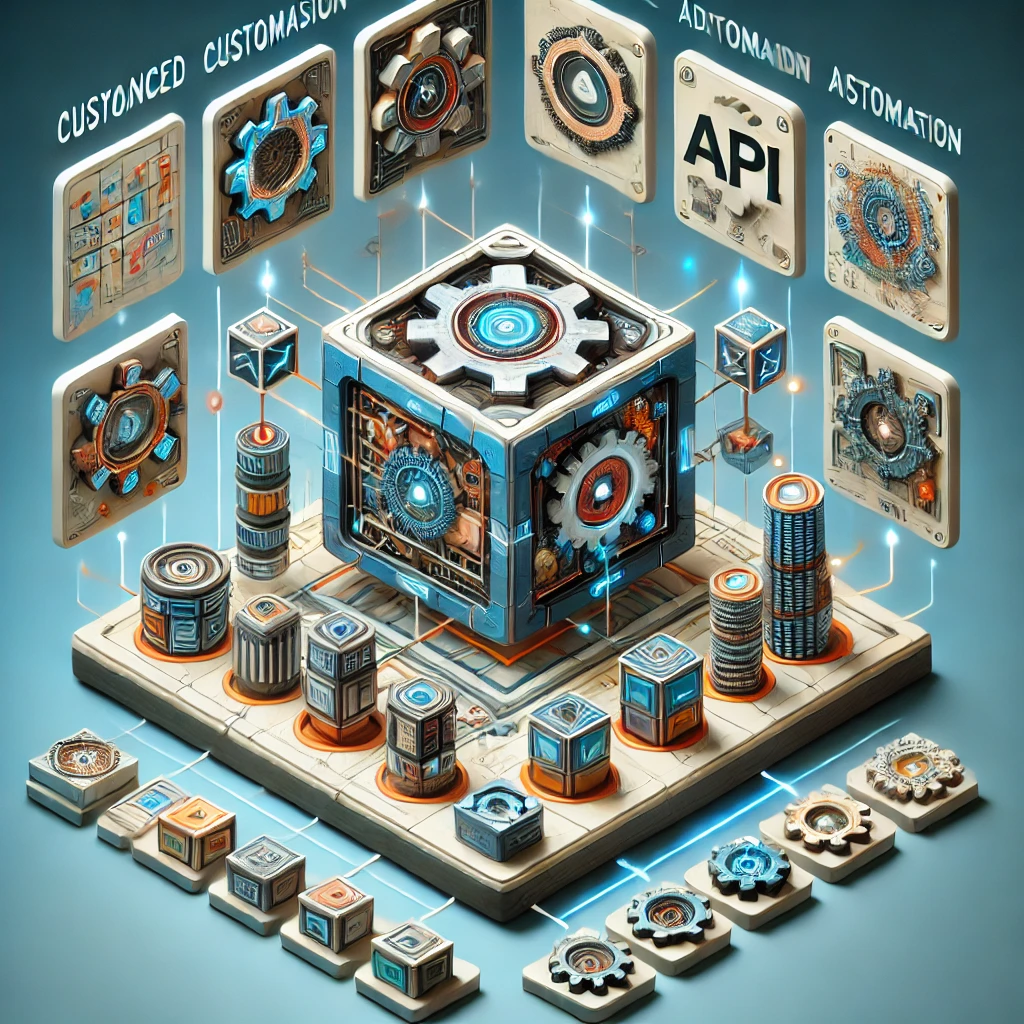Advanced Customization Features in Syncloop API Development

This blog explores the advanced customization features available in Syncloop, offering insights into how they can elevate API development and management.
The Importance of Customization in API Development
Customizable APIs offer several advantages, including:
- Flexibility: Adapts to specific business workflows and application needs.
- Scalability: Ensures APIs grow alongside application demands.
- Enhanced User Experience: Provides tailored responses and functionality for diverse clients.
- Operational Efficiency: Streamlines workflows and reduces development overhead.
- Future-Proofing: Accommodates evolving requirements and emerging technologies.
Key Advanced Customization Features in Syncloop
1. Data Transformation
Syncloop enables developers to customize data formats, making APIs compatible with various platforms and applications.
- Features:
- Format conversion (e.g., JSON to XML or vice versa).
- Schema mapping to align data structures.
- Benefits:
- Ensures interoperability across systems.
- Reduces the need for additional processing on client-side applications.
- Use Case: Transforming legacy system data into a modern app-friendly format.
2. Custom API Endpoints
Developers can create and modify API endpoints to cater to specific business requirements.
- Features:
- Define custom routes and query parameters.
- Adjust endpoint behavior based on client requests.
- Benefits:
- Provides precise control over API functionality.
- Simplifies integration with specialized applications.
- Use Case: Designing a custom endpoint for advanced search capabilities in a retail API.
3. Dynamic Workflow Automation
Syncloop allows the automation of multi-step workflows, integrating APIs with complex business processes.
- Features:
- Event-driven triggers and actions.
- Conditional logic for decision-making workflows.
- Benefits:
- Reduces manual intervention in repetitive tasks.
- Enhances API responsiveness and efficiency.
- Use Case: Automating order fulfillment workflows, including inventory checks and shipment updates.
4. Granular Access Controls
Role-based access control (RBAC) in Syncloop ensures fine-grained permission management for APIs.
- Features:
- Assign roles and permissions to specific users or applications.
- Customize access levels for different endpoints or resources.
- Benefits:
- Enhances security by limiting access to sensitive data.
- Tailors API functionality based on user roles.
- Use Case: Restricting access to administrative endpoints for non-admin users.
5. Protocol and Format Flexibility
Syncloop supports multiple communication protocols and data formats, allowing developers to choose the best fit for their applications.
- Features:
- REST, GraphQL, WebSocket, and MQTT protocol support.
- Customizable response formats.
- Benefits:
- Improves compatibility with a variety of client applications.
- Streamlines integration with legacy and modern systems.
- Use Case: Offering both REST and GraphQL endpoints for a versatile API experience.
6. Custom Error Handling
Syncloop allows developers to define custom error messages and fallback mechanisms, ensuring clarity and reliability.
- Features:
- Custom error codes and descriptions.
- Fallback workflows for error scenarios.
- Benefits:
- Improves debugging and troubleshooting for developers.
- Enhances user experience with actionable error responses.
- Use Case: Providing detailed error messages for failed authentication attempts.
7. Real-Time Monitoring and Analytics
Developers can customize performance monitoring and analytics to track key metrics and optimize APIs.
- Features:
- Configurable dashboards for API performance data.
- Alerts for custom-defined thresholds.
- Benefits:
- Offers insights into API usage patterns.
- Proactively identifies and resolves bottlenecks.
- Use Case: Monitoring API response times for high-traffic endpoints.
8. Custom Integrations
Syncloop simplifies the integration of APIs with third-party tools and services, enabling tailored solutions.
- Features:
- Pre-built connectors for popular platforms.
- API orchestration for complex workflows.
- Benefits:
- Reduces development time for integrations.
- Expands API functionality with minimal effort.
- Use Case: Integrating payment gateways for subscription management APIs.
Benefits of Using Syncloop’s Customization Features
1. Tailored Solutions
Adapts to specific business requirements, enhancing functionality and efficiency.
2. Improved Security
Granular access controls and custom workflows protect sensitive data and ensure compliance.
3. Enhanced Scalability
Customizable endpoints and workflows grow alongside application demands.
4. Faster Development
Pre-built tools and automation reduce development cycles.
5. Better User Experience
Personalized responses and streamlined integrations improve client satisfaction.
Real-World Applications of Syncloop’s Customization Features
1. E-Commerce
- Dynamic pricing and personalized product recommendations.
- Real-time inventory updates across platforms.
2. Healthcare
- Custom workflows for patient appointment scheduling.
- Secure API endpoints for electronic health record access.
3. Financial Services
- Customized endpoints for fraud detection workflows.
- API orchestration for automated loan approval processes.
4. IoT Applications
- Protocol conversion for connecting legacy devices to modern platforms.
- Event-driven triggers for real-time device monitoring and control.
5. SaaS Platforms
- Role-based access for multi-tenant environments.
- Real-time analytics for user behavior tracking.
Best Practices for Customizing APIs with Syncloop
- Plan for Flexibility: Design APIs with scalability and adaptability in mind.
- Leverage Automation: Use workflow tools to reduce manual effort and improve consistency.
- Monitor Continuously: Track API performance and user interactions to refine functionality.
- Secure Endpoints: Implement granular access controls to safeguard sensitive data.
- Test Extensively: Validate customizations across different environments to ensure reliability.
The Future of Customization with Syncloop
As API ecosystems evolve, Syncloop is advancing its customization features with AI-driven insights, predictive performance optimization, and deeper integrations with emerging technologies. These innovations will empower developers to create even more adaptable and efficient APIs.
Conclusion
Customization is a critical component of modern API development, enabling developers to address specific business needs and deliver exceptional user experiences. Syncloop’s advanced customization features provide the tools and flexibility required to build APIs that are secure, scalable, and tailored to any use case.
By leveraging Syncloop, developers can streamline workflows, enhance compatibility, and future-proof their APIs for evolving business demands.
A dynamic illustration showcasing Syncloop’s customization features, highlighting data transformation, workflow automation, and secure API endpoints.
Back to Blogs